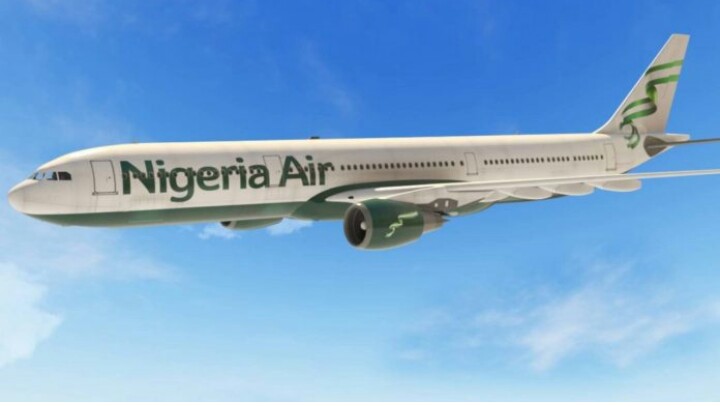- Over N1b Already Spent On Business Plan, Design, London Launch
Except for its indefinite suspension last Wednesday, the national carrier, Nigeria Air, was to cost Nigeria at least N180b yearly for the next 10 years, operators have said.
Local airlines operators, who are privy to the actual business design, as well as, the cost implications said the financial commitment, weaved into the five per cent equity, was mandatory to keep the airline up and running. Even though the Minister of State for Aviation Hadi Sirika did not give reasons for the suspension of the airline, which he earlier said would takeoff on December 24, 2018, The Guardian’s investigation showed that the development was not unconnected with investors’ apathy, ownership structure and funding issues.
It was further learnt that the huge financial request forced the last Federal Executive Council (FEC) to drop Nigeria Air off the priority list, since it was not budgeted for anywhere.While the operators described the indefinite suspension of the launch as a step in the right direction, sources hinted that over a billion naira had been sunk into the business case design, work by the transaction advisory team in the last two years, and unveiling of the logo in London recently.
According to the Chairman of the Airlines Operators of Nigeria (AON), Capt. Nogie Meggison, setting up an airline requires huge capital investment and that explains why national carriers are no long fashionable around the world. Meggison said it was in this light that AON continued to call for a rethink, especially given the tough economic situation in the country and the fact that “it is a moribund idea”
Meggison said: “Setting up of National Carrier will cost Nigeria at least N1.08t ($3b). A single Boeing 777 as of today costs about N115.2b ($320m).“Is it wise and should it be our priority as a nation to take $3b from our coffers today and put into a venture that will for sure go down the drain within a maximum of five years it will take to establish a national carrier?
Also, bear in mind that the national carrier will need an additional cash injection of N180bn ($500m) subsidy per year on average for the next 10 years to keep the airline afloat, while about 97 per cent of the 200 million Nigerian masses today are grappling for the basic necessities of life; food, shelter, electricity, water, education and good roads,” he said.
Sharing AON’s view that owning a national airline because of national pride is out of vogue because it is capital intensive is Chief Executive Officer of Topbrass Aviation Services, Capt. Roland Iyayi. Iyayi said: “Just recently, the South African government had to inject $2m into the South African Airways, but how many times will a government be bailing out a national airline? There was a time Alitalia was bailed out by the Italian government, and when it found out that it was no longer tenable, it turned to privatisation.
“I am a businessman. If I have already lost $5m and I see that my continued exposure to the same enterprise would amount to $100m loss, I would choose, which of the two options is cheaper for me. And that will be $5. Meaning that no matter how much the government has expended now, it will be pittance to what it will lose in the long term. For me, I would stop now instead of doing something that is not sustainable.”
The Federal Government in July unveiled the name and logo of the proposed national carrier, Nigeria Air, at the Farnborough International Public Airshow in London. As contained in the Outline Business Case (OBC) approved by the Infrastructure Concession Regulatory Commission (ICRC) and disclosed to the public, the airline is a Public Private Partnership (PPP) project, with 95 per cent share pushed to investors while the government will own the rest.To get the new national carrier start off, the government will be injecting N3.168b ($8.8m) as the startup capital. It was learnt that the N3.2b is part-payment for the government’s five per cent equity in the investment, whose takeoff fund in the next three years of operation has been put at N108b ($300m).
